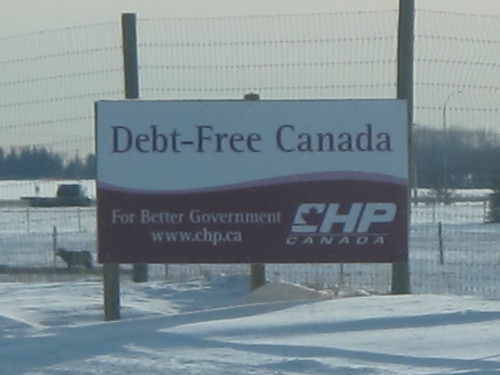
With the start of Stampede season came the latest round of gossip and predictions about what the future might hold for Calgary MLA and Alberta’s Premier Alison Redford. Earlier this week in a column in the Edmonton Journal, Graham Thomson speculated that Premier Redford’s next political challenge could be the biggest in the land – Prime Minister of Canada.
I have no reason to doubt Premier Redford’s political acumen or capability. Having only become Premier of Alberta eight months ago, she has hardly had an opportunity to demonstrate leadership on the national stage.
The upcoming Premiers’ conference, hosted by Premier Darrell Dexter from July 25 to 27 in Halifax, might give Albertans, and Canadians, an opportunity to watch Premier Redford demonstrate her leadership skills on a national level.
The issue of oil exports and pipeline construction, which will certainly be a topic of conversation at the Premiers’ meeting, became more complicated this week as American National Transportation Safe Board investigators criticized Enbridge for its slow response to a major pipeline leak in Michigan in 2010. Supported by the Government of Alberta, Enbridge wants to begin construction of the Northern Gateway Pipeline from Alberta to Kitimat, British Columbia. Adding another roadblock to the pipeline’s construction is BC Premier Christy Clark, who called Enbridge’s response to the Michigan spill disgraceful.
Closer to home, more than 50 organizations are calling on the Alberta Government to review the safety standards of the province’s aging pipelines.
Premier Redford has an opportunity to lead, and distinguish herself from her federal counterparts, by taking a positive lead on the renewal of the Canada Health Accord. The Accord, which was signed 10 years ago and expires in 2014, gave the provinces a significant monetary transfer for health care funding. The previous incarnation had little strings attached and the success of a future accord would benefit Canadians if more accountability were attached to the federal transfer.
Premier Redford’s road to 24 Sussex Drive is also complicated by another major factor. Only six years in to the job and still a young 53 years old, there is no indication that Prime Minister Stephen Harper will be retiring in the near future.
Relations with Premier Redford’s Progressive Conservatives is cool to cold in some, or perhaps even most most, federal Conservative circles. Immigration Minister Jason Kenney‘s recent reply-all email describing Deputy Premier Thomas Lukazsuk as a “complete and utter asshole” serves as a reminder of how strained the relations are between some federal and provincial Conservatives. In the recent election, a significant number of Conservative Members of Parliament supported Danielle Smith‘s upstart Wildrose Party.
Two years ago it would have seemed impossible, but current federal NDP leader Thomas Mulcair may actually have a shot at 24 Sussex Drive after the next federal election. The NDP are tied or leading in the polls and while there is three years until the next election (aka an eternity in politics when anything could happen), Mr. Mulcair appears to be the first Leader of the Official Opposition to take an aggressive offensive position against Prime Minister Harper’s Conservatives.
Earlier this week, the NDP released an attack ad against Prime Minister Harper, giving the federal Conservatives a taste of their own medicine. If anything, the ads demonstrate that Mr. Mulcair’s NDP are not afraid to use the same tactics that Prime Minister Harper’s Conservative Party used to destroy the political careers of weak former Liberal leaders Stephane Dion and Michael Ignatieff.











